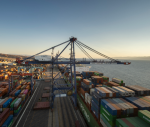You are here
G-7 fails to recognise link between economics, politics
Aug 31,2019 - Last updated at Aug 31,2019
The G-7 summit in France raised the spectre of many questions and issues.
For starters, the exclusion of Russia was one of the most apparent issues facing the G-7 on the pretext that it occupied and annexed the Crimea at a time when it was among the founding members of the group. Russia happens to be a Eurasian country. Its human rights record though was not even raised, nor was its role in the Syrian conflict.
If Russia can be excluded from the intergovernmental economic organisation for its annexation of the Crimea, what reason is there to explain or justify the exclusion of China or India for example?
Another related issue is why this group exists in the first place when it is the creation of the G-20, which is also essentially an intergovernmental forum, composed of finance ministers and central bank governors of the biggest 20 economies in the world. What legitimate and rational yardsticks are used for deciding on the composition of the two complementary groups of nations when one excludes Moscow, New Delhi and Beijing, but includes all of them in the other?
It strikes me that a double standard is applied when it comes to the G-7 club by disqualifying nations such as China, Russia and India. It is both the credibility and the relevance of the G-7 which are at stake if nations such as Russia, China and India continue to be excluded from the group.
It is never too late to correct this flaw before the next G-7 meeting, now scheduled to take place in Florida at the invitation of the US.
When it comes to substance,
there was nothing spectacular or out of the ordinary in the final communique of the meeting. The issue of trade wars was remotely mentioned, even though it is on the top of the global issues in the wake of the escalation of tensions between Washington and Beijing. Global recession, which is also in the making, was not directly addressed or confronted. Interference in sea shipping, especially across the Strait of Hormuz, was bypassed as far as one can see. None of the flash points in the Middle East were remotely touched.
Given the fact that political issues cannot be totally divorced from economic matters, one wonders why the G-7 failed to recognise this link. US President Donald Trump was even facetious about the whole gathering when he commented sarcastically that it was perhaps a waste of time.













